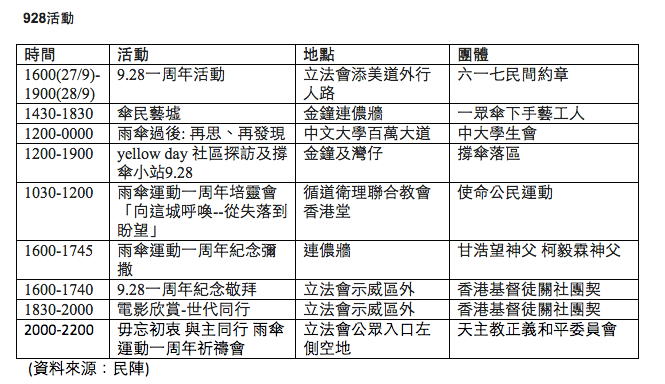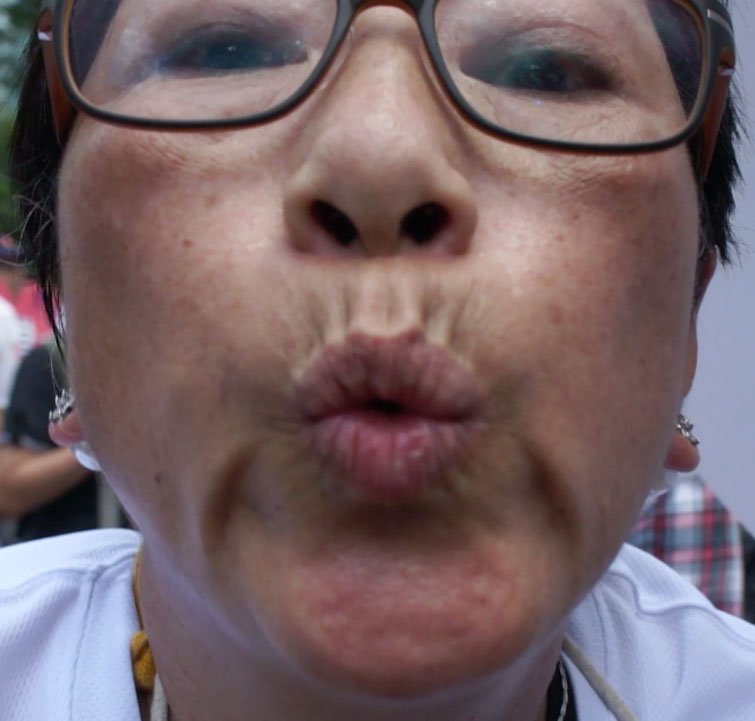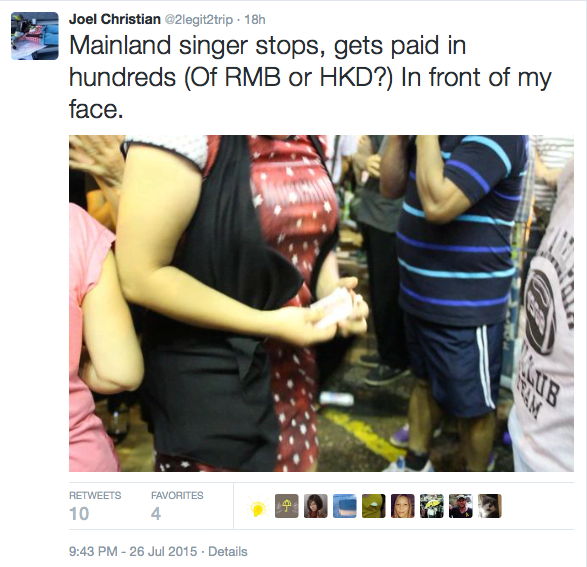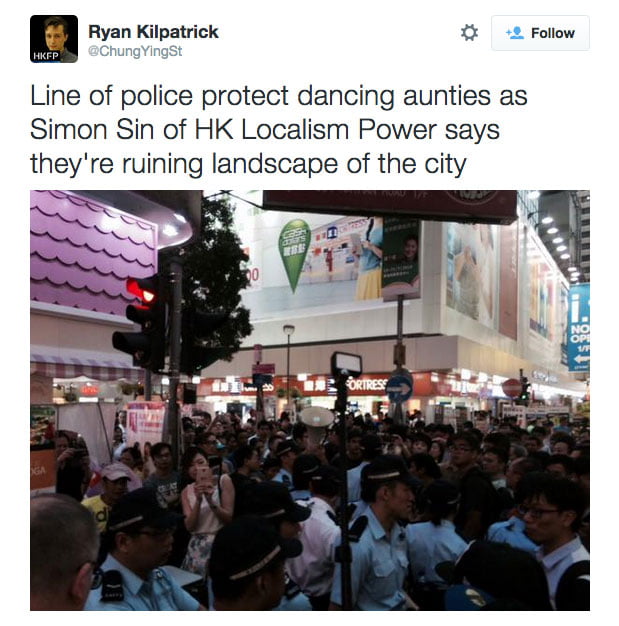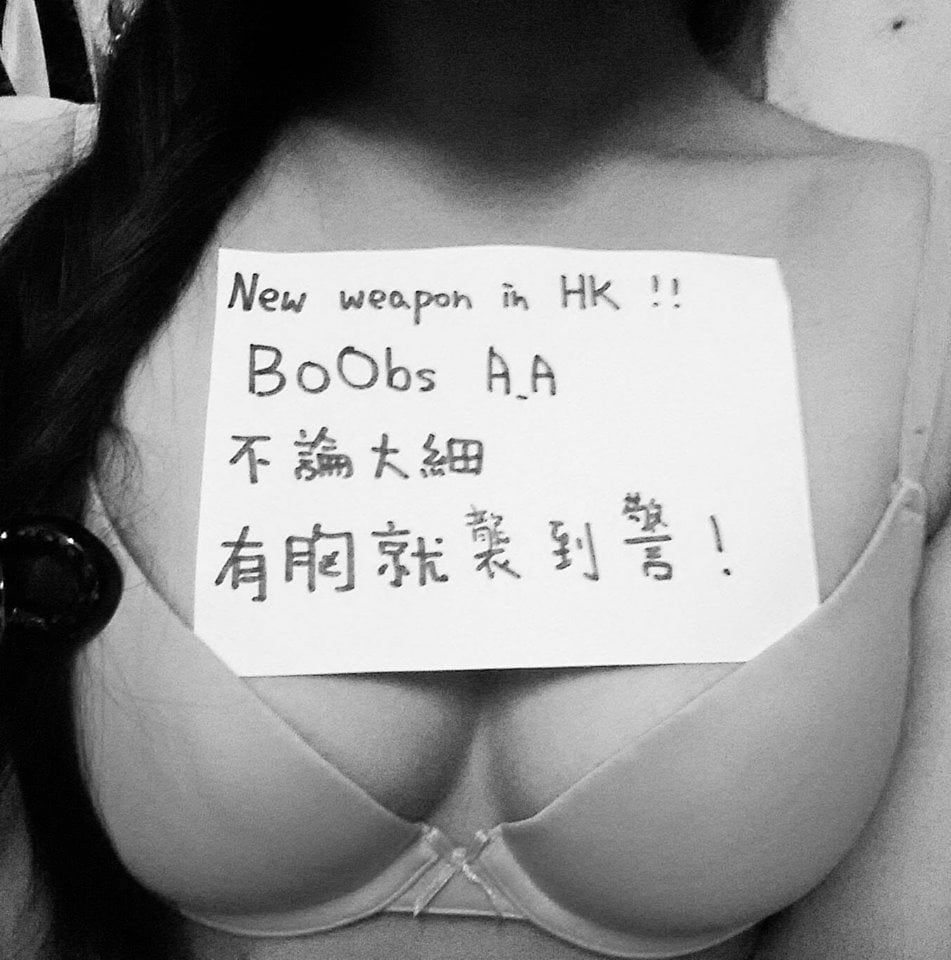August 31st marks the one year anniversary of the publication of the Decision of the Standing Committee of the National People’s Congress on Issues Relating to the Selection of the Chief Executive of the Hong Kong Special Administrative Region by Universal Suffrage.
For those who have not read it, here is the full text
Decision of the Standing Committee of the National People’s Congress on Issues Relating to the Selection of the Chief Executive of the Hong Kong Special Administrative Region by Universal Suffrage and on the Method for Forming the Legislative Council of the Hong Kong Special Administrative Region in the Year 2016
(Adopted at the Tenth Session of the Standing Committee of the Twelfth National People’s Congress on 31 August 2014)
The Standing Committee of the Twelfth National People’s Congress considered at its Tenth Session the Report on whether there is a need to amend the methods for selecting the Chief Executive of the Hong Kong Special Administrative Region in 2017 and for forming the Legislative Council of the Hong Kong Special Administrative Region in 2016 submitted by Leung Chun-ying, the Chief Executive of the Hong Kong Special Administrative Region, on 15 July 2014. In the course of deliberation, the relevant views and suggestions of the Hong Kong community were given full consideration.
The Session points out that according to the Decision of the Standing Committee of the National People’s Congress on Issues Relating to the Methods for Selecting the Chief Executive of the Hong Kong Special Administrative Region and for Forming the Legislative Council of the Hong Kong Special Administrative Region in the Year 2012 and on Issues Relating to Universal Suffrage adopted by the Standing Committee of the Tenth National People’s Congress at its Thirty-first Session on 29 December 2007, the election of the fifth Chief Executive of the Hong Kong Special Administrative Region in the year 2017 may be implemented by the method of universal suffrage; at an appropriate time prior to the selection of the Chief Executive of the Hong Kong Special Administrative Region by universal suffrage, the Chief Executive shall make a report to the Standing Committee of the National People’s Congress as regards the issue of amending the method for selecting the Chief Executive in accordance with the relevant provisions of the Hong Kong Basic Law and the Interpretation by the Standing Committee of the National People’s Congress of Article 7 of Annex I and Article III of Annex II to the Basic Law of the Hong Kong Special Administrative Region of the People’s Republic of China, and a determination thereon shall be made by the Standing Committee of the National People’s Congress. From 4 December 2013 to 3 May 2014, the Government of the Hong Kong Special Administrative Region conducted an extensive and in-depth public consultation on the methods for selecting the Chief Executive in 2017 and for forming the Legislative Council in 2016. In the course of consultation, the Hong Kong community generally expressed the hope to see the selection of the Chief Executive by universal suffrage in 2017, and broad consensus was reached on important principles such as: the method for selecting the Chief Executive by universal suffrage shall comply with the Hong Kong Basic Law and the relevant Decisions of the Standing Committee of the National People’s Congress and the Chief Executive shall be a person who loves the country and loves Hong Kong. With respect to the methods for selecting the Chief Executive by universal suffrage in 2017 and for forming the Legislative Council in 2016, the Hong Kong community put forward various views and suggestions. It was on this basis that the Chief Executive of the Hong Kong Special Administrative Region made a report to the Standing Committee of the National People’s Congress on issues relating to amending the methods for selecting the Chief Executive in 2017 and for forming the Legislative Council in 2016. The Session is of the view that the report complies with the requirements of the Hong Kong Basic Law, the Interpretation by the Standing Committee of the National People’s Congress of Article 7 of Annex I and Article III of Annex II to the Hong Kong Basic Law and the relevant Decisions of the Standing Committee of the National People’s Congress, and reflects comprehensively and objectively the views collected during the public consultation; and is thus a positive, responsible and pragmatic report.
The Session is of the view that implementing universal suffrage for the selection of the Chief Executive represents a historic progress in Hong Kong’s democratic development and a significant change in the political structure of the Hong Kong Special Administrative Region. Since the long-term prosperity and stability of Hong Kong and the sovereignty, security and development interests of the country are at stake, there is a need to proceed in a prudent and steady manner. The selection of the Chief Executive of the Hong Kong Special Administrative Region by universal suffrage has its origin in Paragraph 2 of Article 45 of the Hong Kong Basic Law: “The method for selecting the Chief Executive shall be specified in the light of the actual situation in the Hong Kong Special Administrative Region and in accordance with the principle of gradual and orderly progress. The ultimate aim is the selection of the Chief Executive by universal suffrage upon nomination by a broadly representative nominating committee in accordance with democratic procedures.” The formulation of the method for selecting the Chief Executive by universal suffrage must strictly comply with the relevant provisions of the Hong Kong Basic Law, accord with the principle of “one country, two systems”, and befit the legal status of the Hong Kong Special Administrative Region. It must meet the interests of different sectors of the society, achieve balanced participation, be conducive to the development of the capitalist economy, and make gradual and orderly progress in developing a democratic system that suits the actual situation in Hong Kong. Given the divergent views within the Hong Kong community on how to implement the Hong Kong Basic Law provisions on universal suffrage for selecting the Chief Executive, and in light of the constitutional responsibility of the Standing Committee of the National People’s Congress for the proper implementation of the Hong Kong Basic Law and for deciding on the method for the selection of the Chief Executive, the Standing Committee of the National People’s Congress finds it necessary to make provisions on certain core issues concerning the method for selecting the Chief Executive by universal suffrage, so as to facilitate the building of consensus within the Hong Kong community and the attainment of universal suffrage for the selection of the Chief Executive smoothly and in accordance with law.
The Session is of the view that since the Chief Executive of the Hong Kong Special Administrative Region shall be accountable to both the Hong Kong Special Administrative Region and the Central People’s Government in accordance with the provisions of the Hong Kong Basic Law, the principle that the Chief Executive has to be a person who loves the country and loves Hong Kong must be upheld. This is a basic requirement of the policy of “one country, two systems”. It is determined by the legal status as well as important functions and duties of the Chief Executive, and is called for by the actual need to maintain long-term prosperity and stability of Hong Kong and uphold the sovereignty, security and development interests of the country. The method for selecting the Chief Executive by universal suffrage must provide corresponding institutional safeguards for this purpose.
The Session is of the view that the amendments made to the method for forming the fifth term Legislative Council in 2012 represented major strides towards the direction of enhancing democracy. The existing formation method and voting procedures for the Legislative Council as prescribed in Annex II to the Hong Kong Basic Law will not be amended, and will continue to apply in respect of the sixth term Legislative Council in 2016. This is consistent with the principle of gradual and orderly progress in developing a democratic system that suits Hong Kong’s actual situation and conforms to the majority view in the Hong Kong community. It also helps the various sectors of the Hong Kong community to focus their efforts on addressing the issues concerning universal suffrage for selecting the Chief Executive first, thus creating the conditions for attaining the aim of electing all the members of the Legislative Council by universal suffrage after the implementation of universal suffrage for the selection of the Chief Executive.
Accordingly, pursuant to the relevant provisions of the Basic Law of the Hong Kong Special Administrative Region of the People’s Republic of China, the Interpretation by the Standing Committee of the National People’s Congress of Article 7 of Annex I and Article III of Annex II to the Basic Law of the Hong Kong Special Administrative Region of the People’s Republic of China and the Decision of the Standing Committee of the National People’s Congress on Issues Relating to the Methods for Selecting the Chief Executive of the Hong Kong Special Administrative Region and for Forming the Legislative Council of the Hong Kong Special Administrative Region in the Year 2012 and on Issues Relating to Universal Suffrage, the Standing Committee of the National People’s Congress makes the following decision:
I. Starting from 2017, the selection of the Chief Executive of the Hong Kong Special Administrative Region may be implemented by the method of universal suffrage.
II. When the selection of the Chief Executive of the Hong Kong Special Administrative Region is implemented by the method of universal suffrage:
(1) A broadly representative nominating committee shall be formed. The provisions for the number of members, composition and formation method of the nominating committee shall be made in accordance with the number of members, composition and formation method of the Election Committee for the Fourth Chief Executive.
(2) The nominating committee shall nominate two to three candidates for the office of Chief Executive in accordance with democratic procedures. Each candidate must have the endorsement of more than half of all the members of the nominating committee.
(3) All eligible electors of the Hong Kong Special Administrative Region have the right to vote in the election of the Chief Executive and elect one of the candidates for the office of Chief Executive in accordance with law.
(4) The Chief Executive-elect, after being selected through universal suffrage, will have to be appointed by the Central People’s Government.
III. The specific method of universal suffrage for selecting the Chief Executive shall be prescribed in accordance with legal procedures through amending Annex I to the Basic Law of the Hong Kong Special Administrative Region of the People’s Republic of China: The Method for the Selection of the Chief Executive of the Hong Kong Special Administrative Region. The bill on the amendments and the proposed amendments to such bill shall be introduced by the Hong Kong Special Administrative Region Government to the Legislative Council of the Hong Kong Special Administrative Region in accordance with the Hong Kong Basic Law and the provisions of this Decision. Such amendments shall obtain the endorsement of a two-thirds majority of all the members of the Legislative Council and the consent of the Chief Executive before being submitted to the Standing Committee of the National People’s Congress for approval.
IV. If the specific method of universal suffrage for selecting the Chief Executive is not adopted in accordance with legal procedures, the method used for selecting the Chief Executive for the preceding term shall continue to apply.
V. The existing formation method and voting procedures for the Legislative Council as prescribed in Annex II to the Hong Kong Basic Law will not be amended. The formation method and procedures for voting on bills and motions of the fifth term Legislative Council will continue to apply to the sixth term Legislative Council of the Hong Kong Special Administrative Region in 2016. After the election of the Chief Executive by universal suffrage, the election of all the members of the Legislative Council of the Hong Kong Special Administrative Region may be implemented by the method of universal suffrage. At an appropriate time prior to the election of the Legislative Council by universal suffrage, the Chief Executive elected by universal suffrage shall submit a report to the Standing Committee of the National People’s Congress in accordance with the relevant provisions of the Hong Kong Basic Law and the Interpretation by the Standing Committee of the National People’s Congress of Article 7 of Annex I and Article III of Annex II to the Basic Law of the Hong Kong Special Administrative Region of the People’s Republic of China as regards the issue of amending the method for forming the Legislative Council. A determination thereon shall be made by the Standing Committee of the National People’s Congress.
The Session stresses that it is the consistent position of the central authorities to implement resolutely and firmly the principles of “one country, two systems”, “Hong Kong people administering Hong Kong” and a high degree of autonomy, strictly adhere to the Hong Kong Basic Law and steadily take forward the selection of the Chief Executive by universal suffrage in 2017. It is hoped that the Hong Kong Special Administrative Region Government and all sectors of the Hong Kong community will act in accordance with the provisions of the Hong Kong Basic Law and this Decision and jointly work towards the attainment of the aim of selecting the Chief Executive by universal suffrage.

